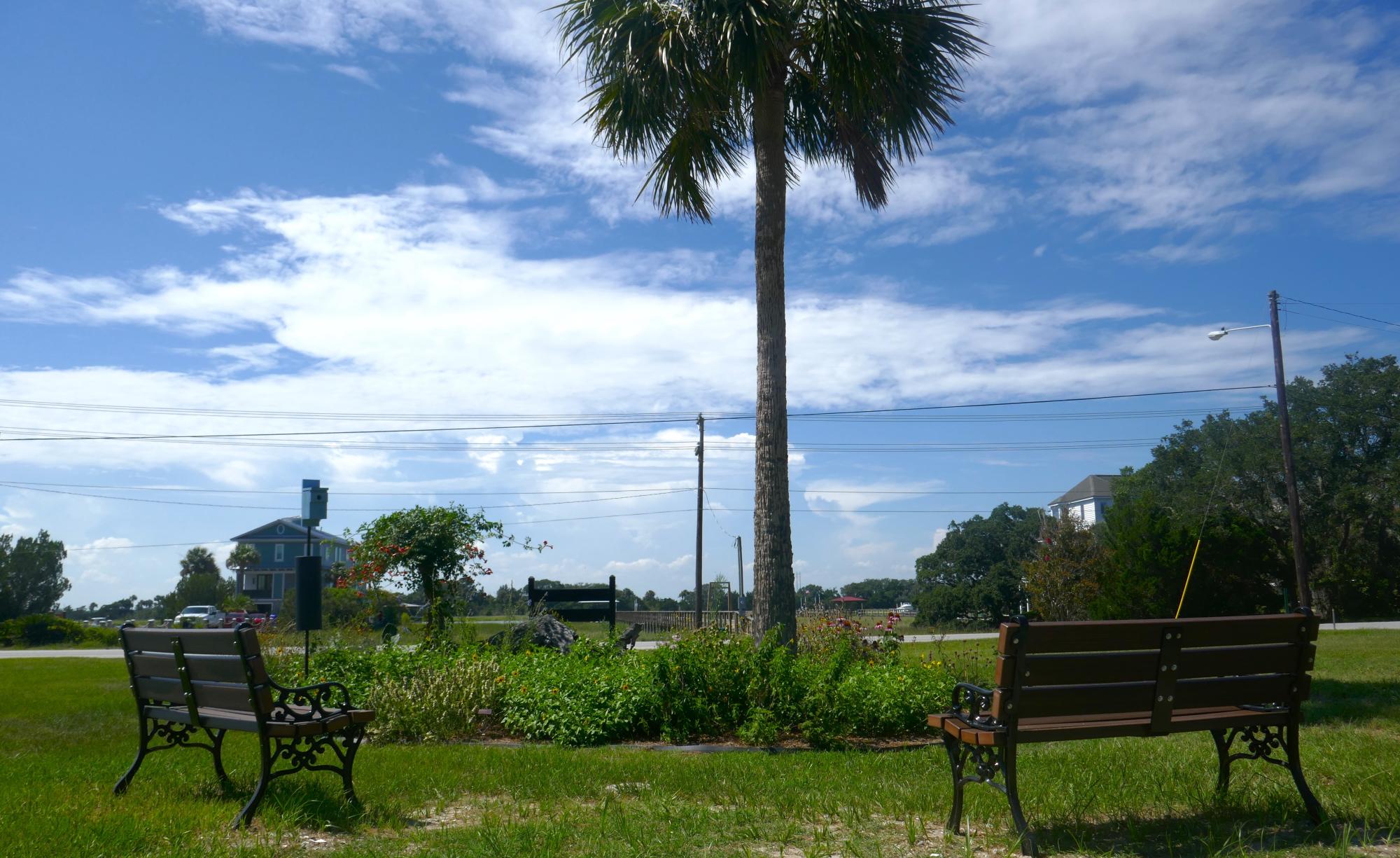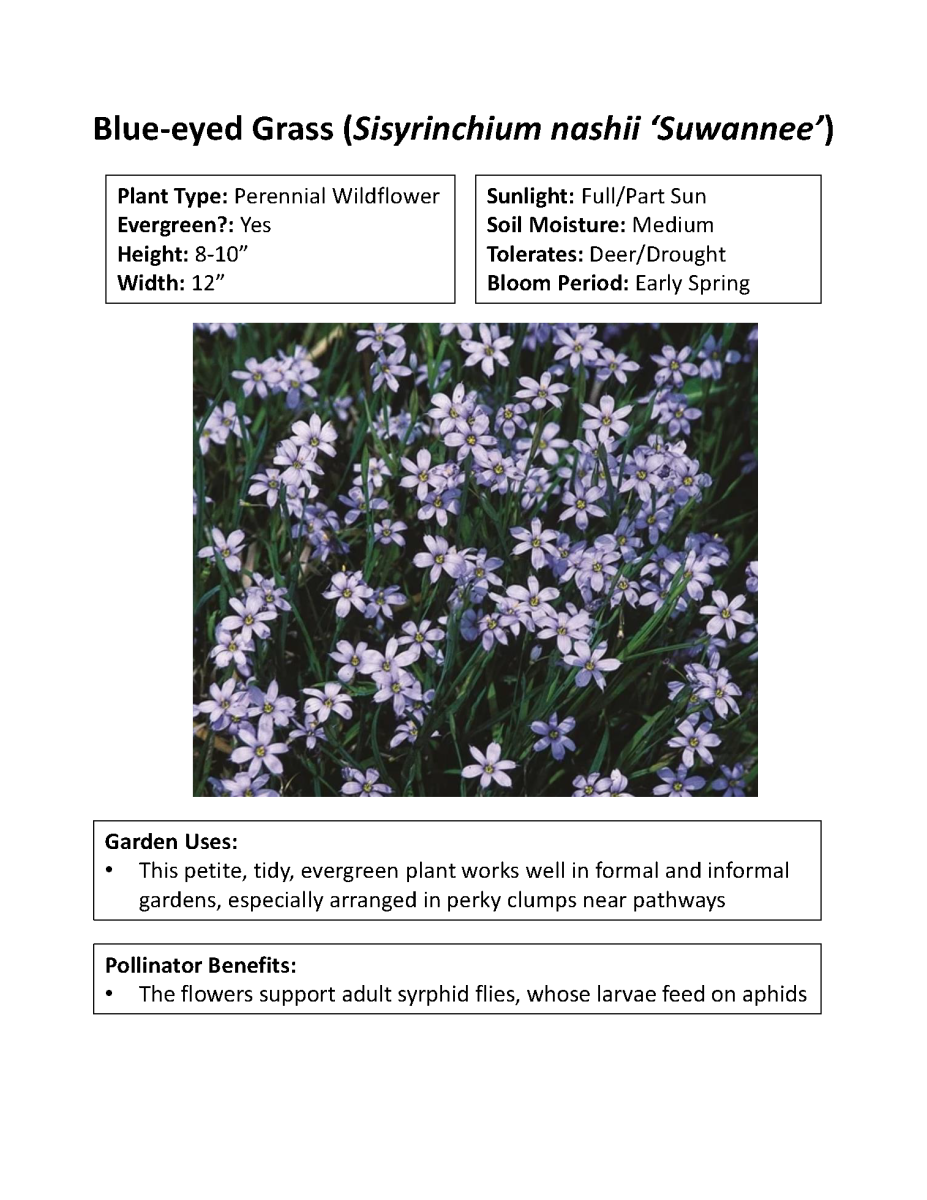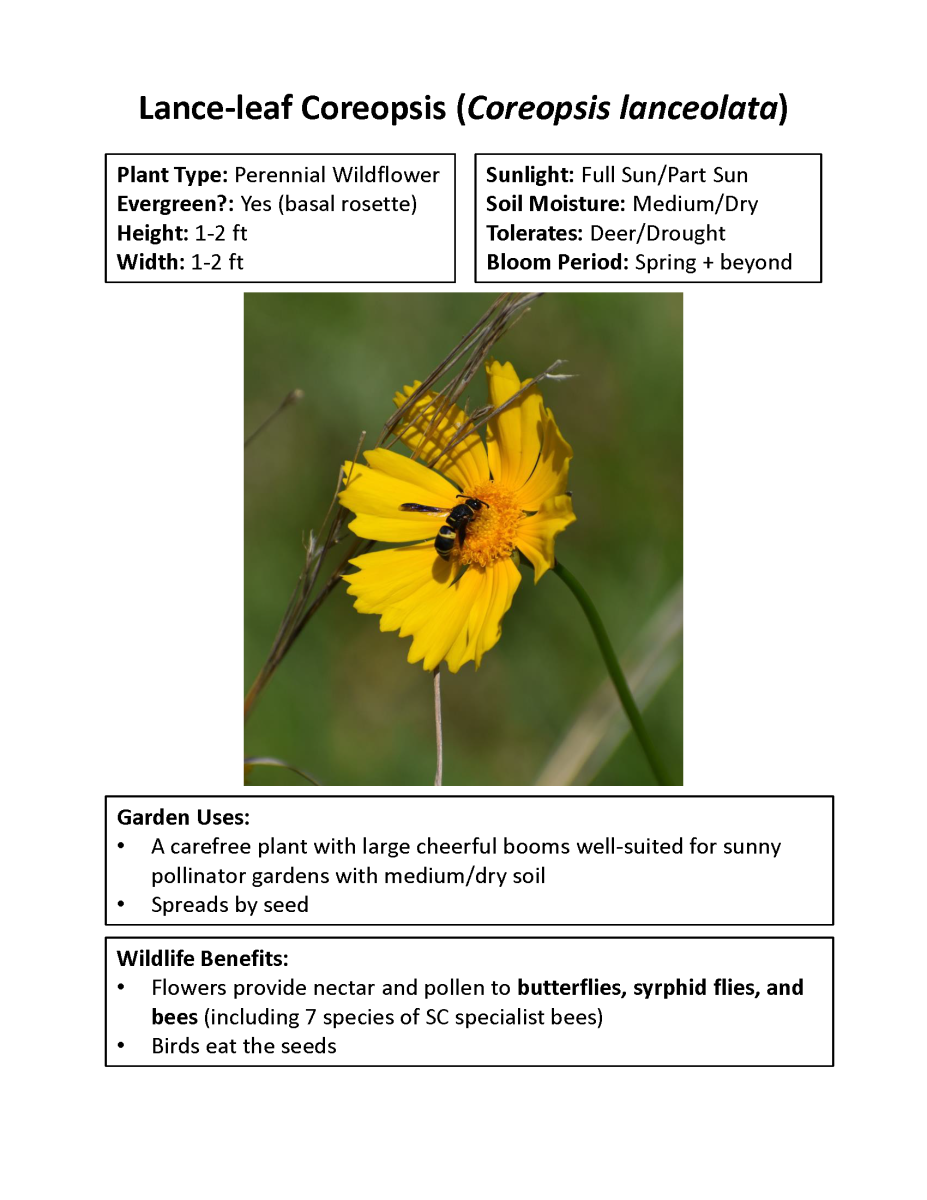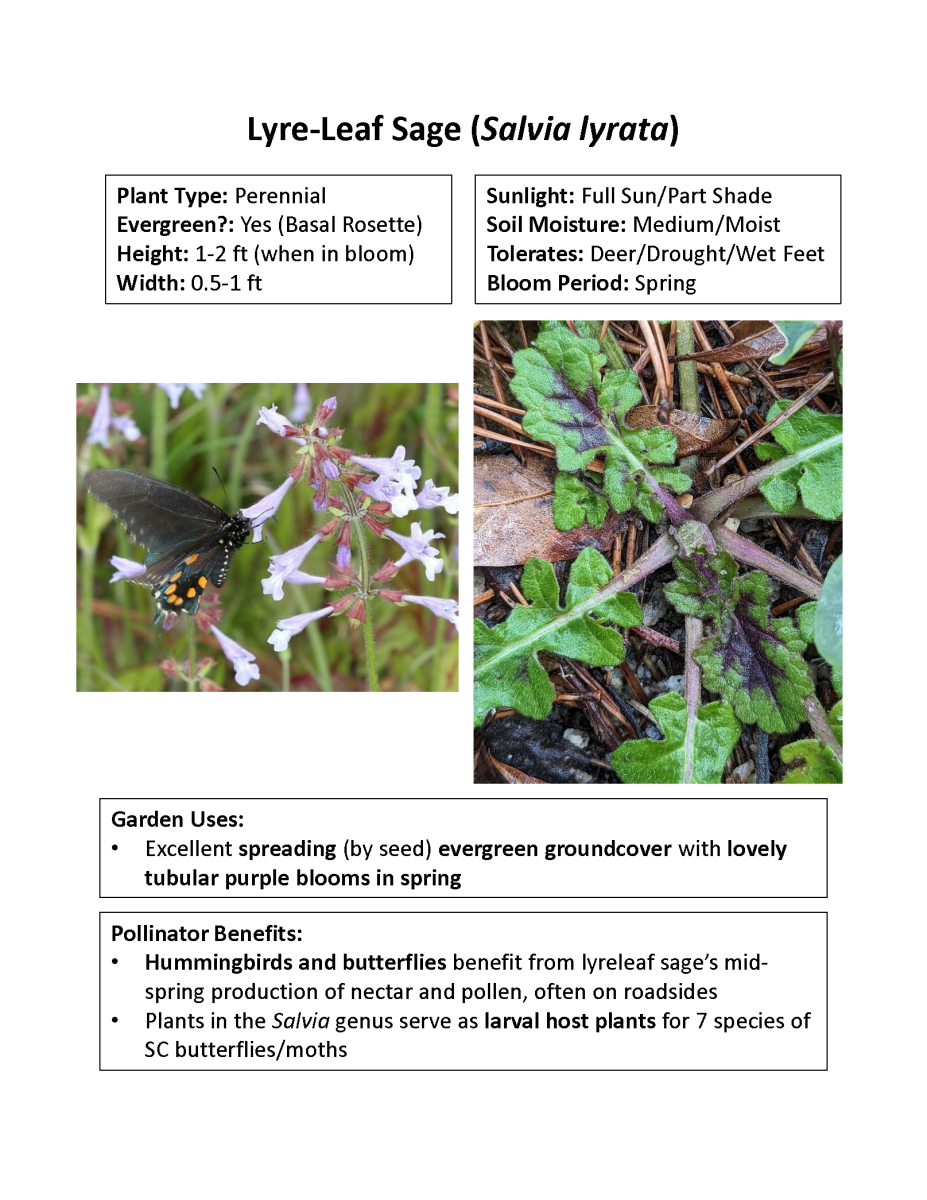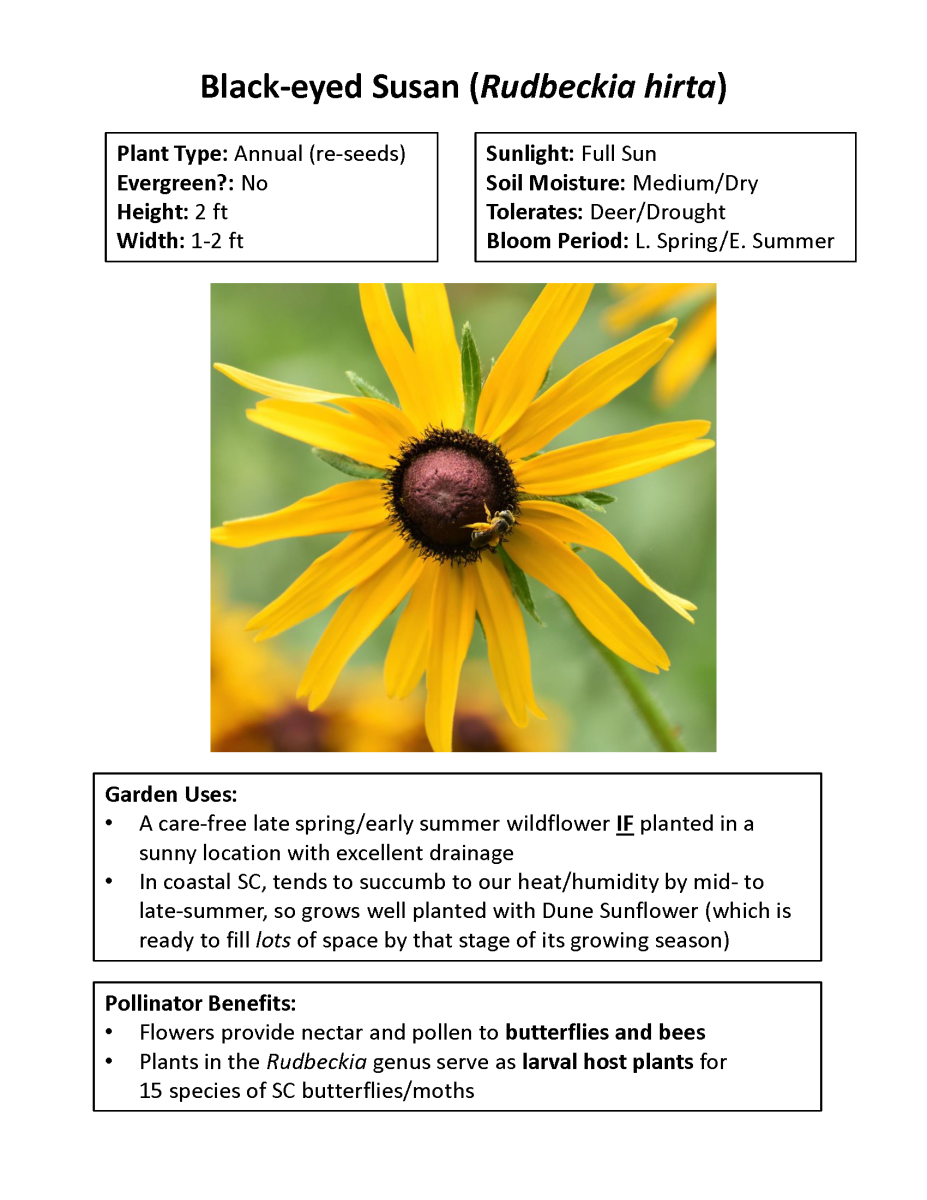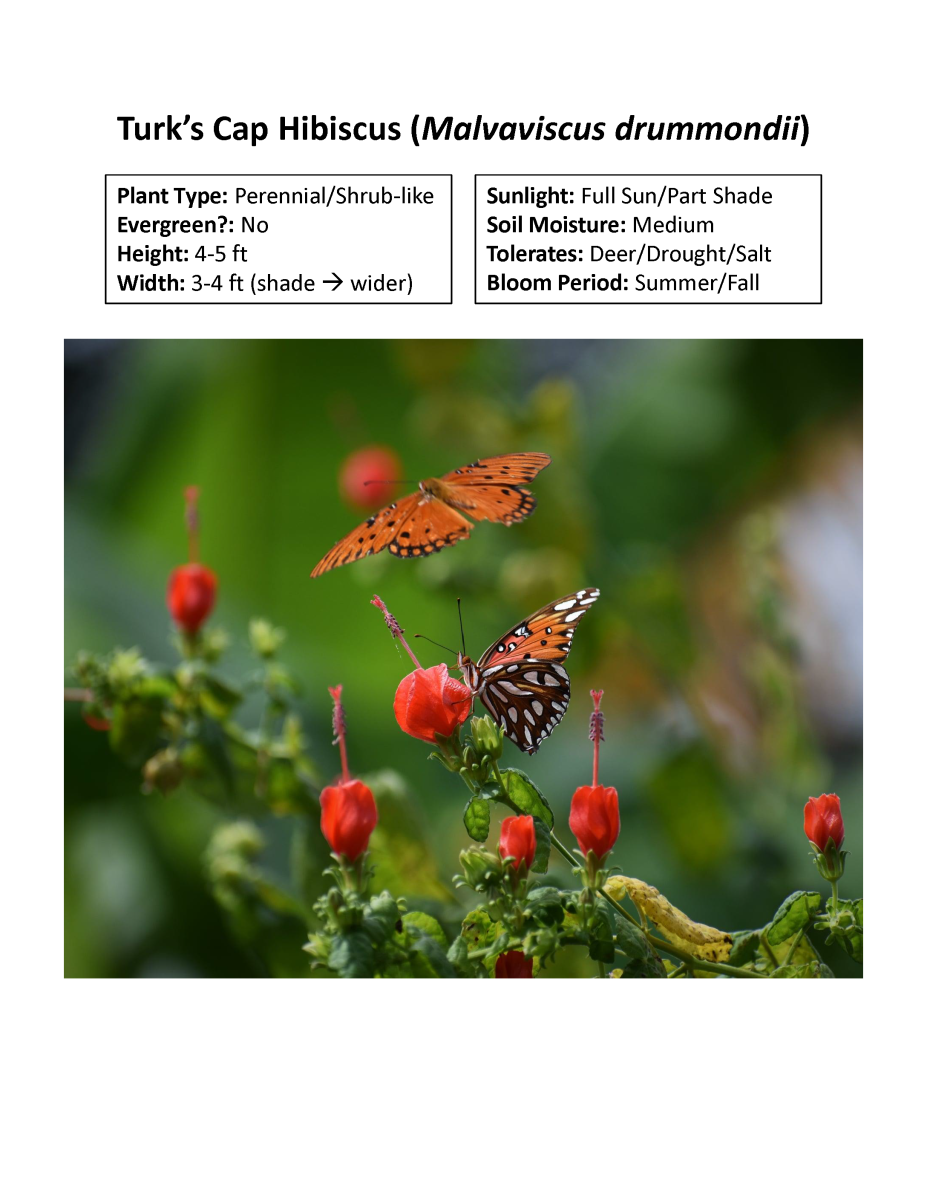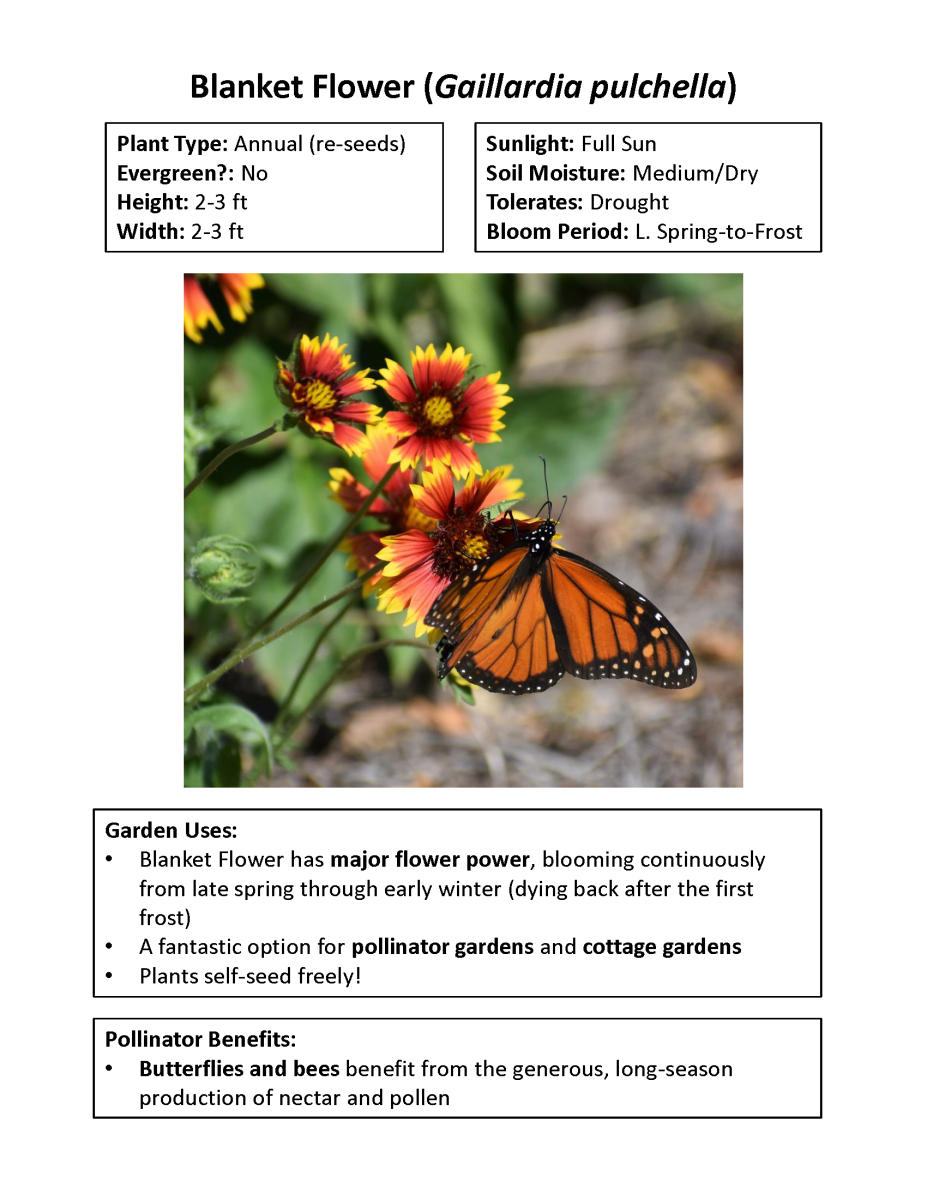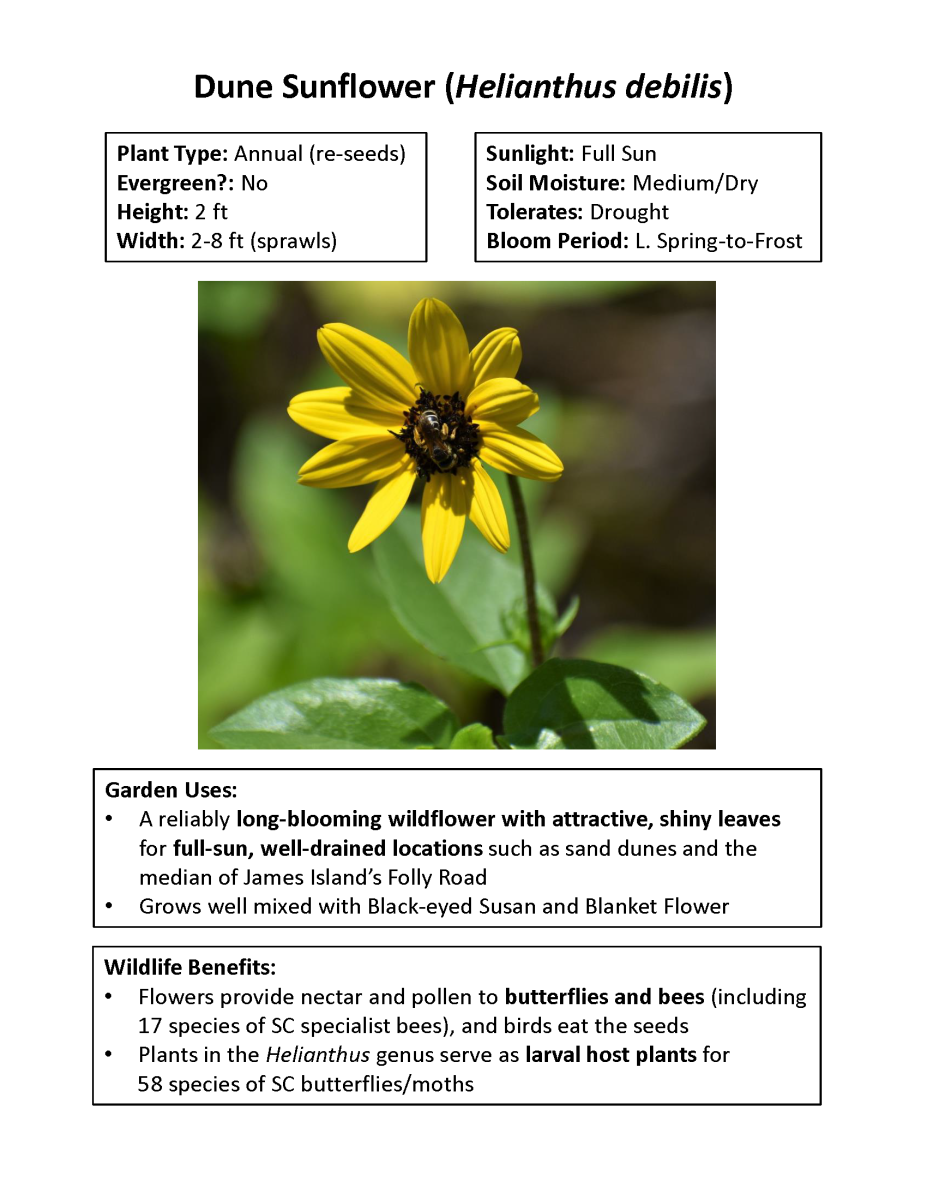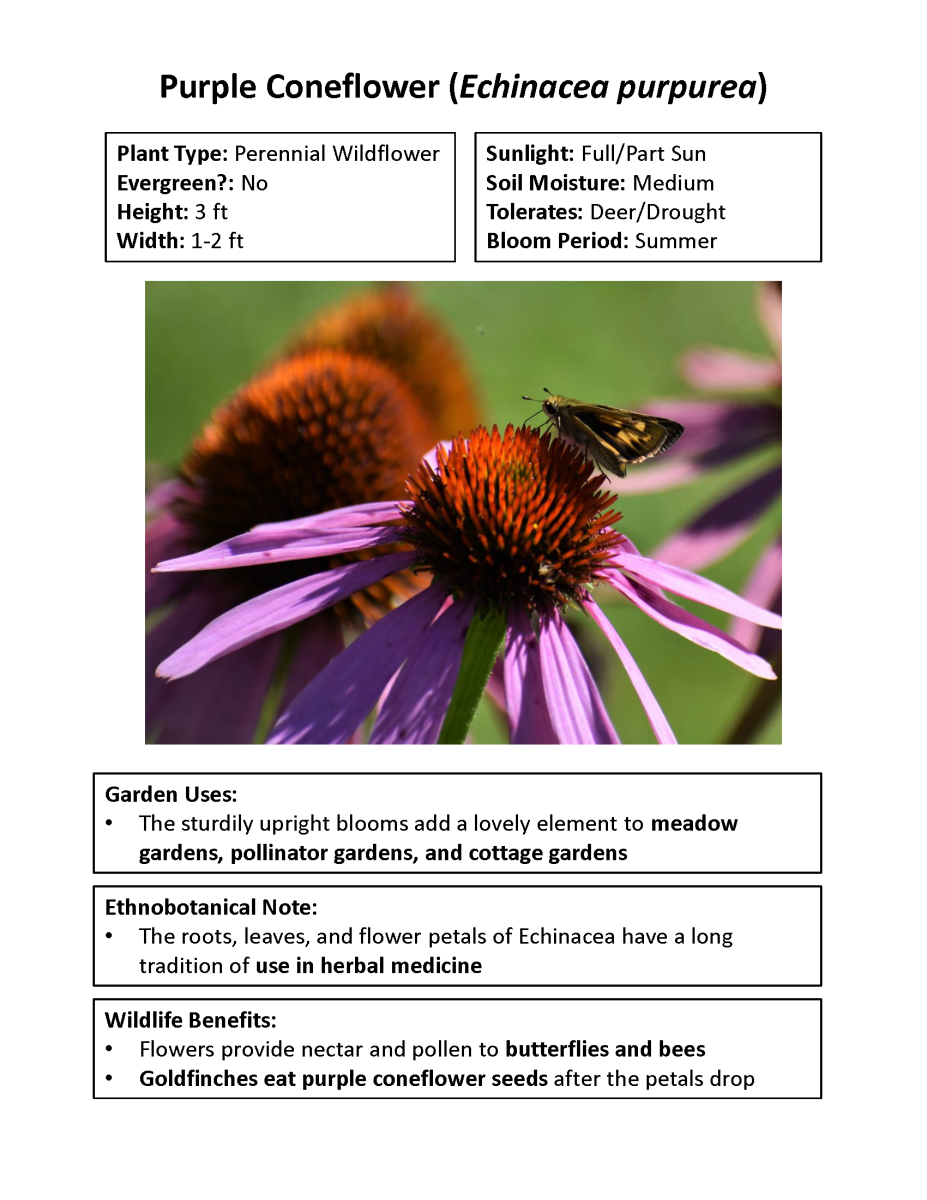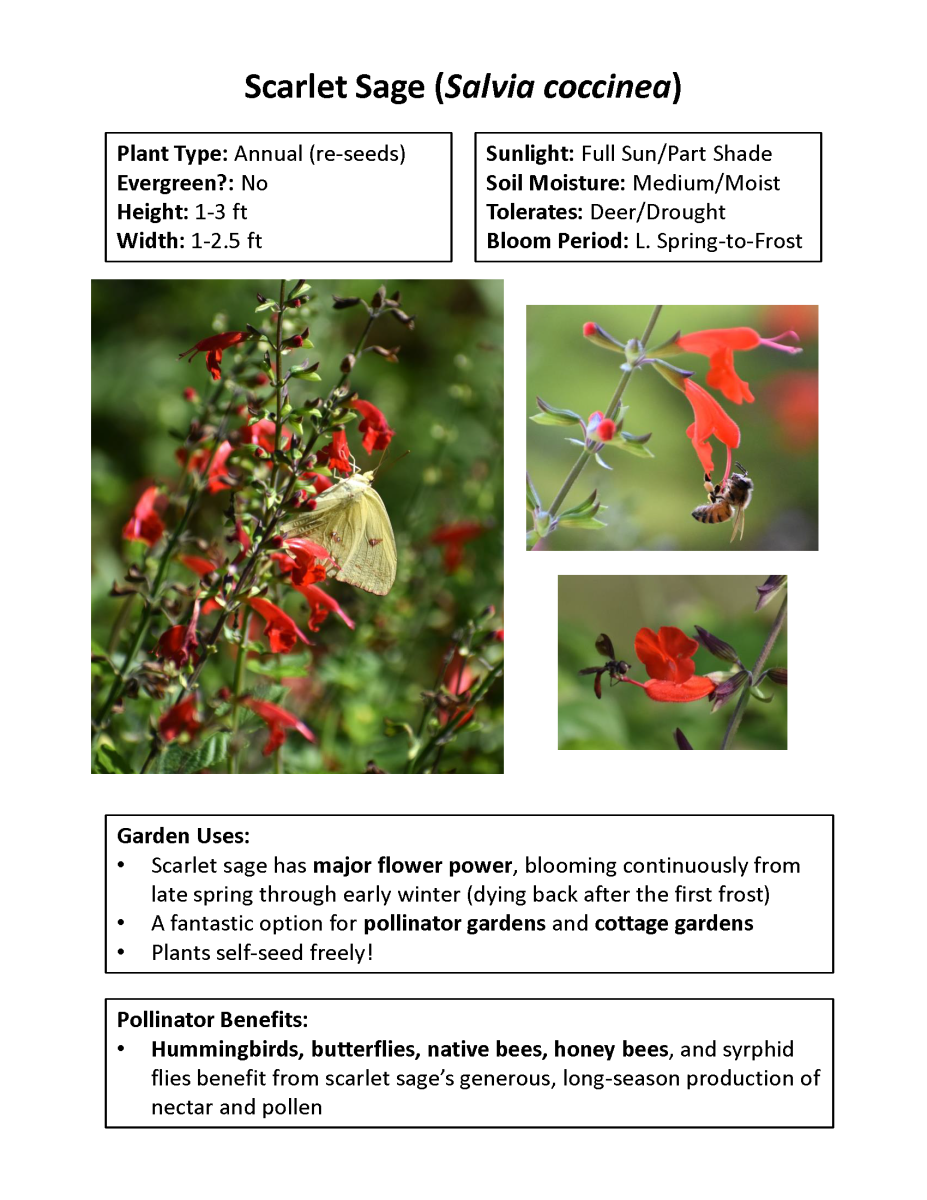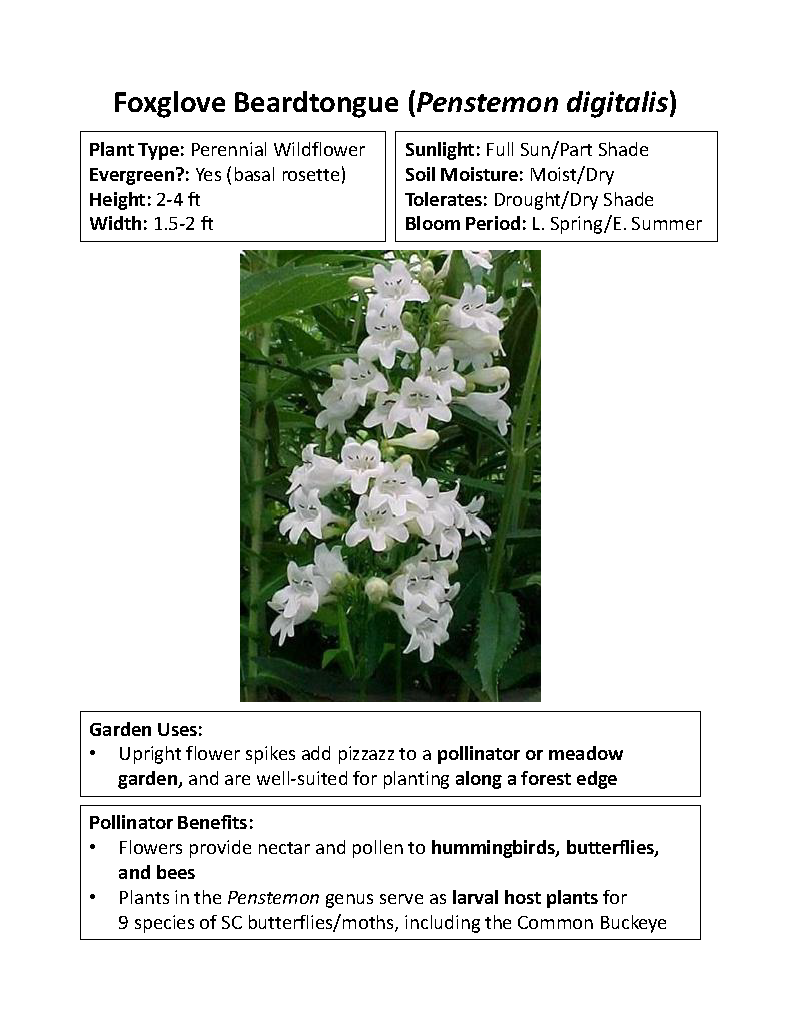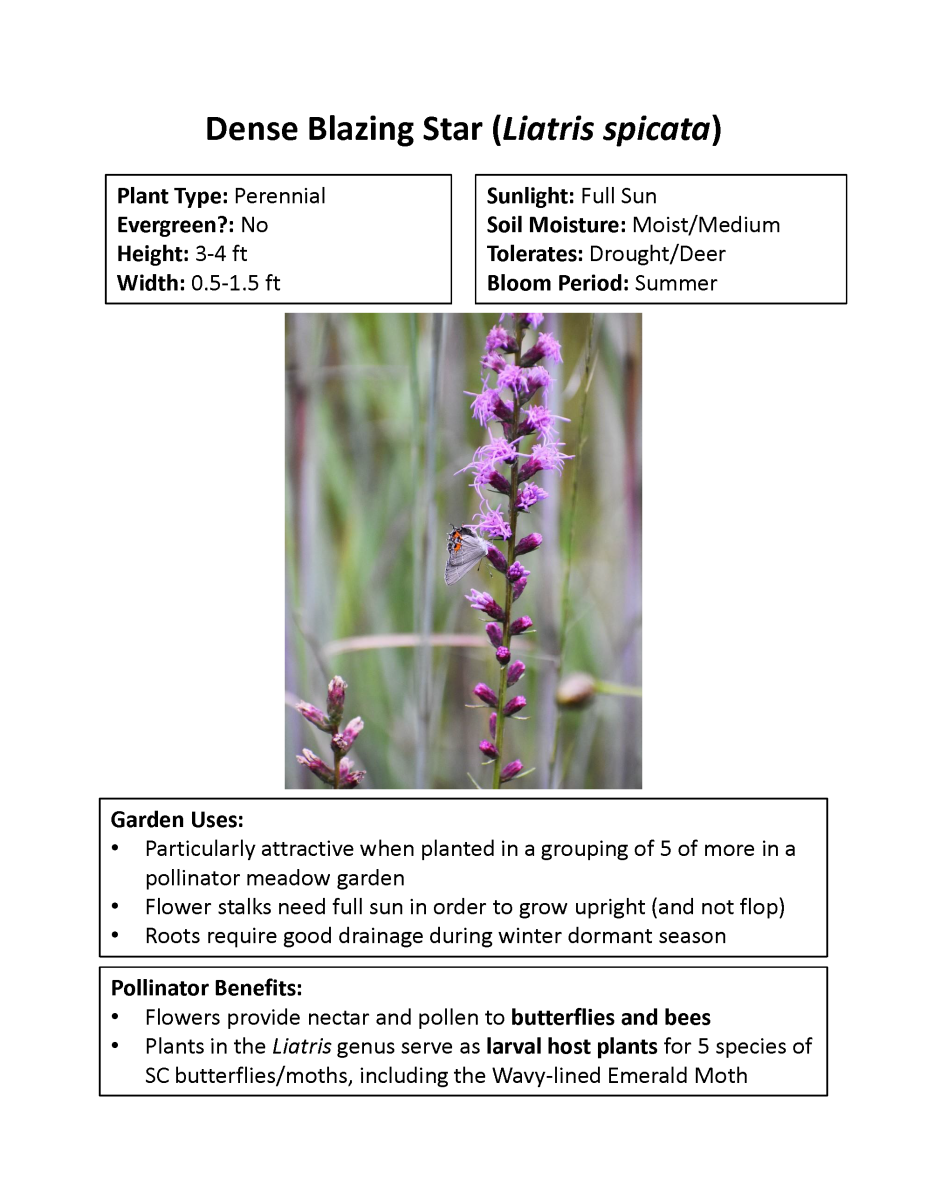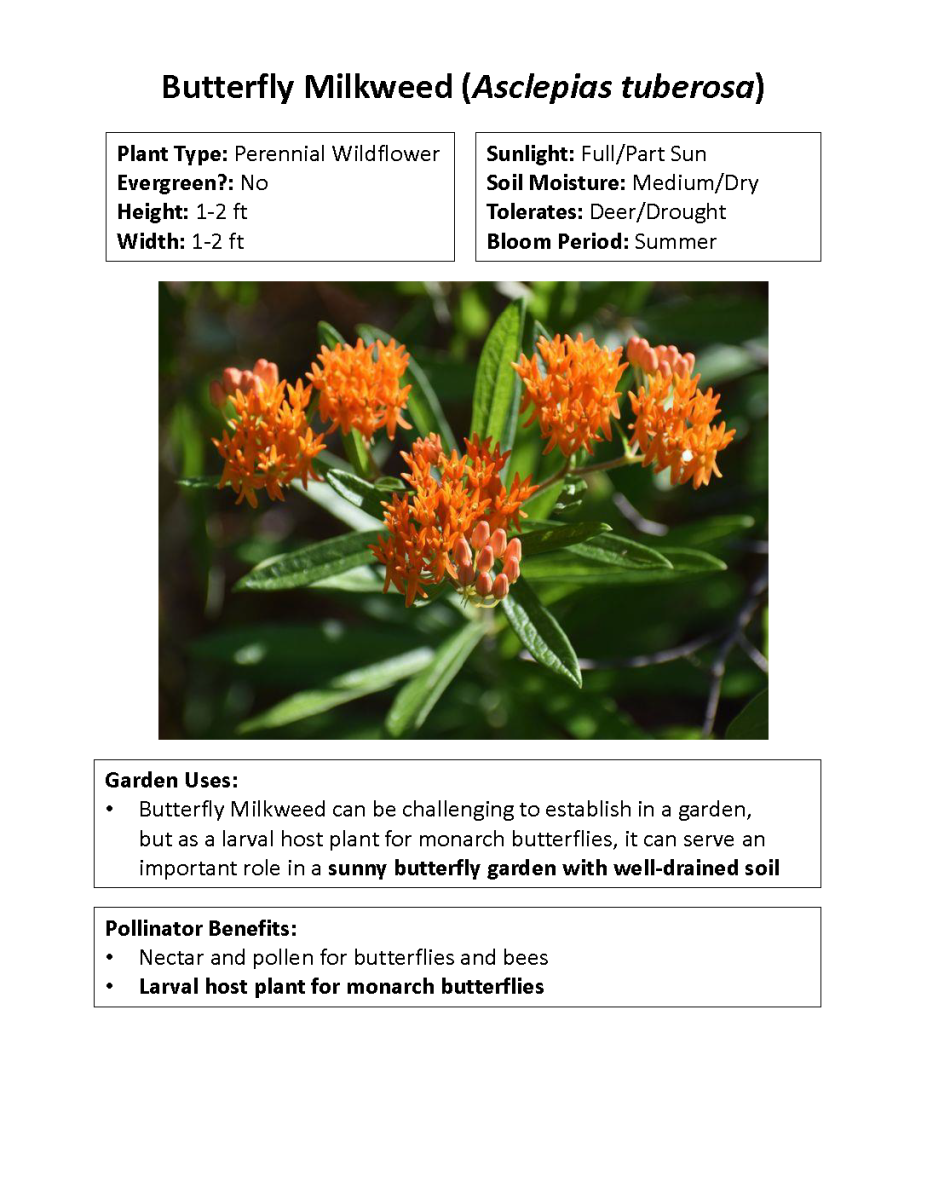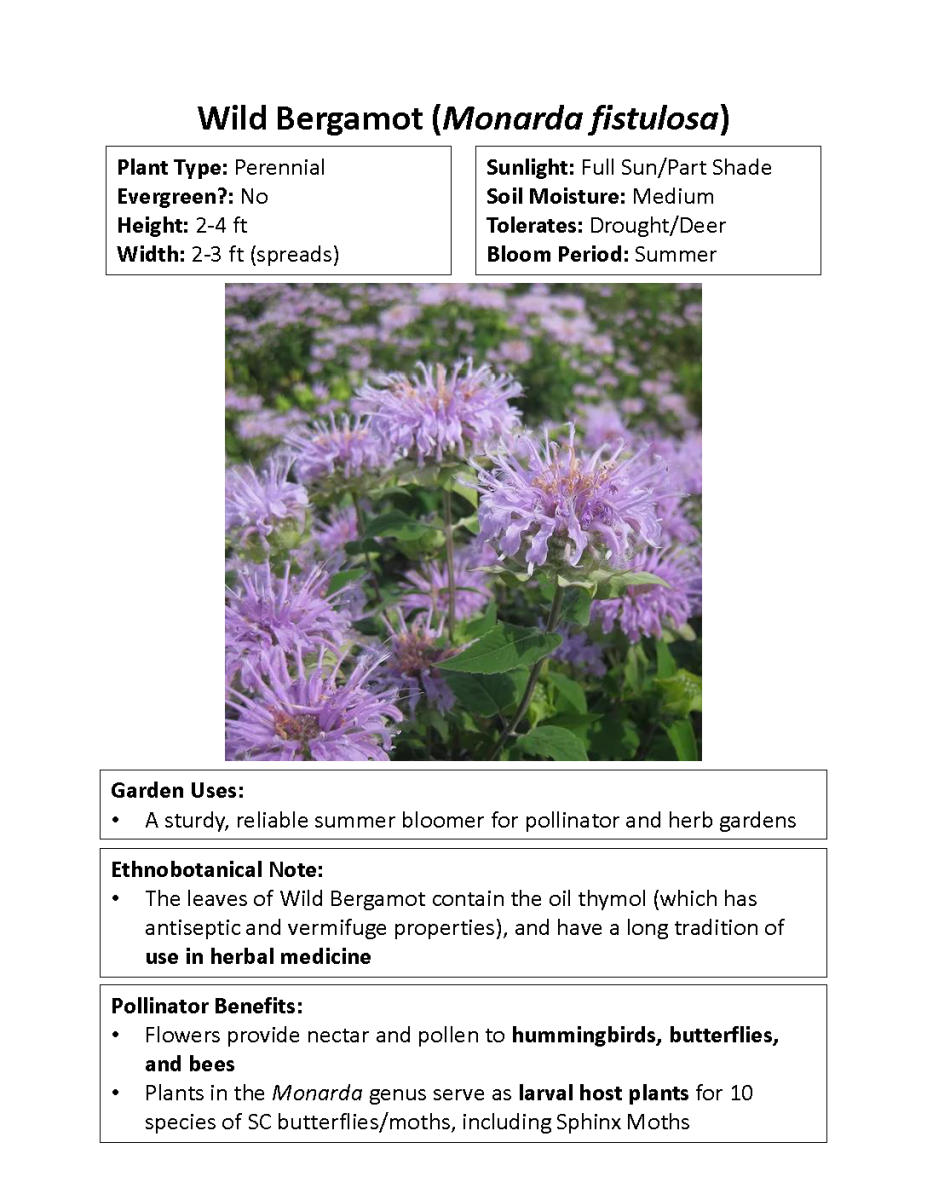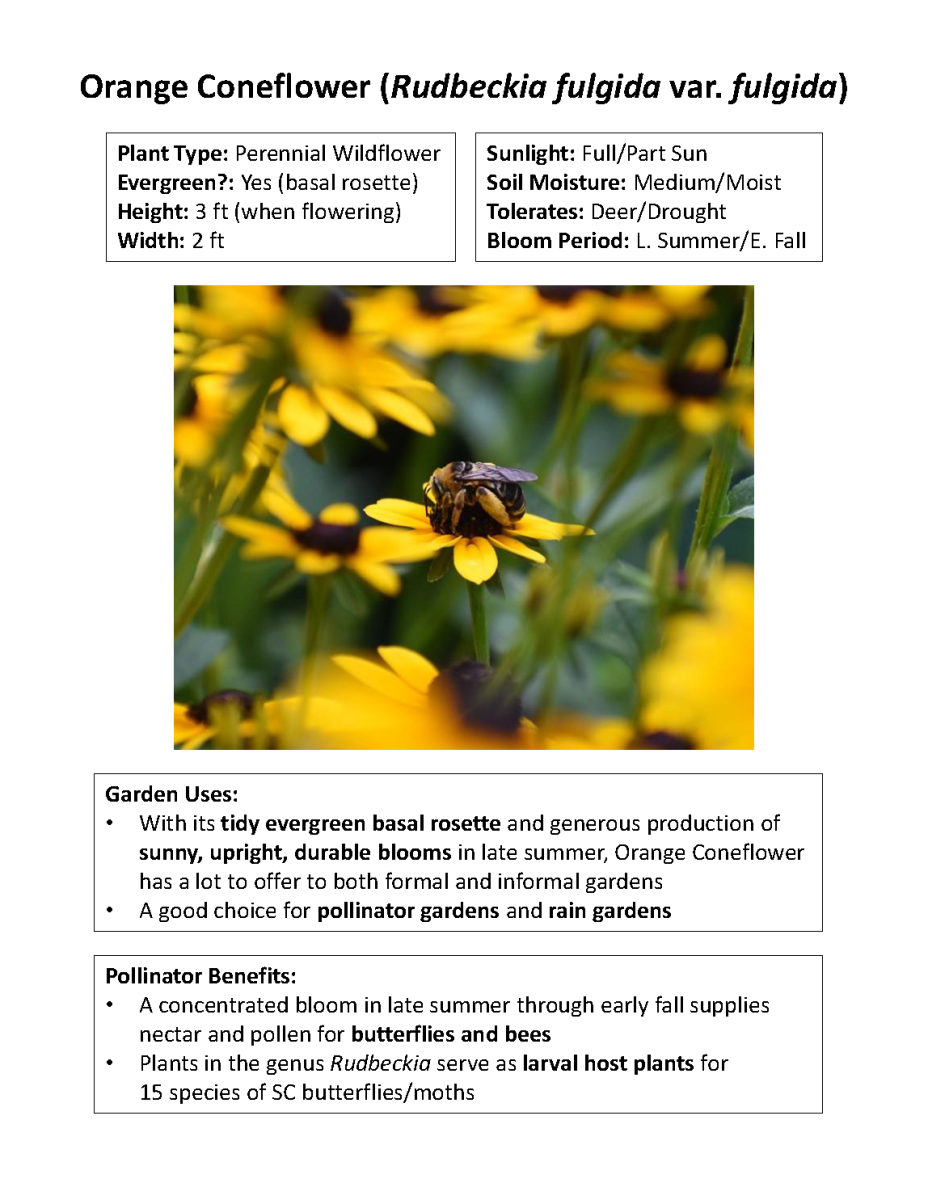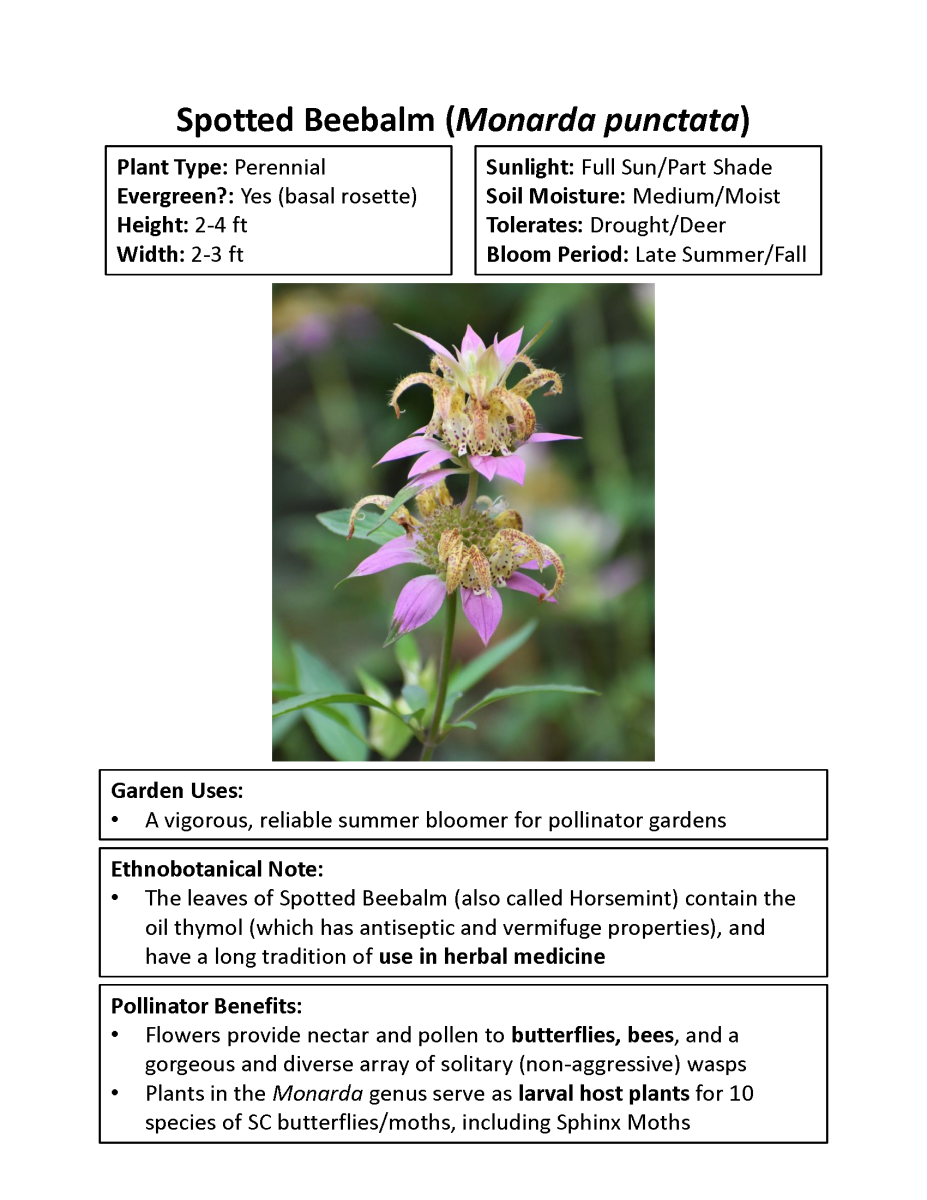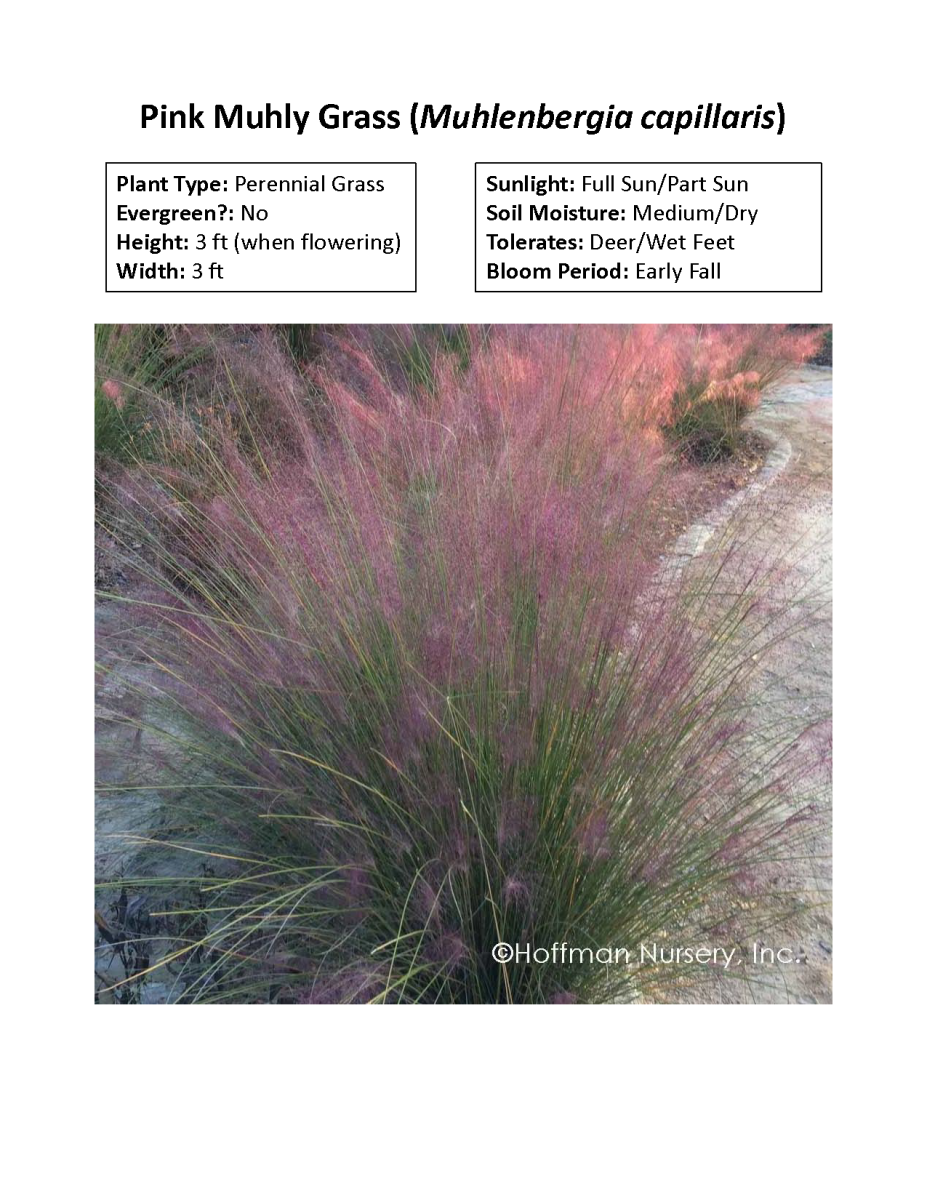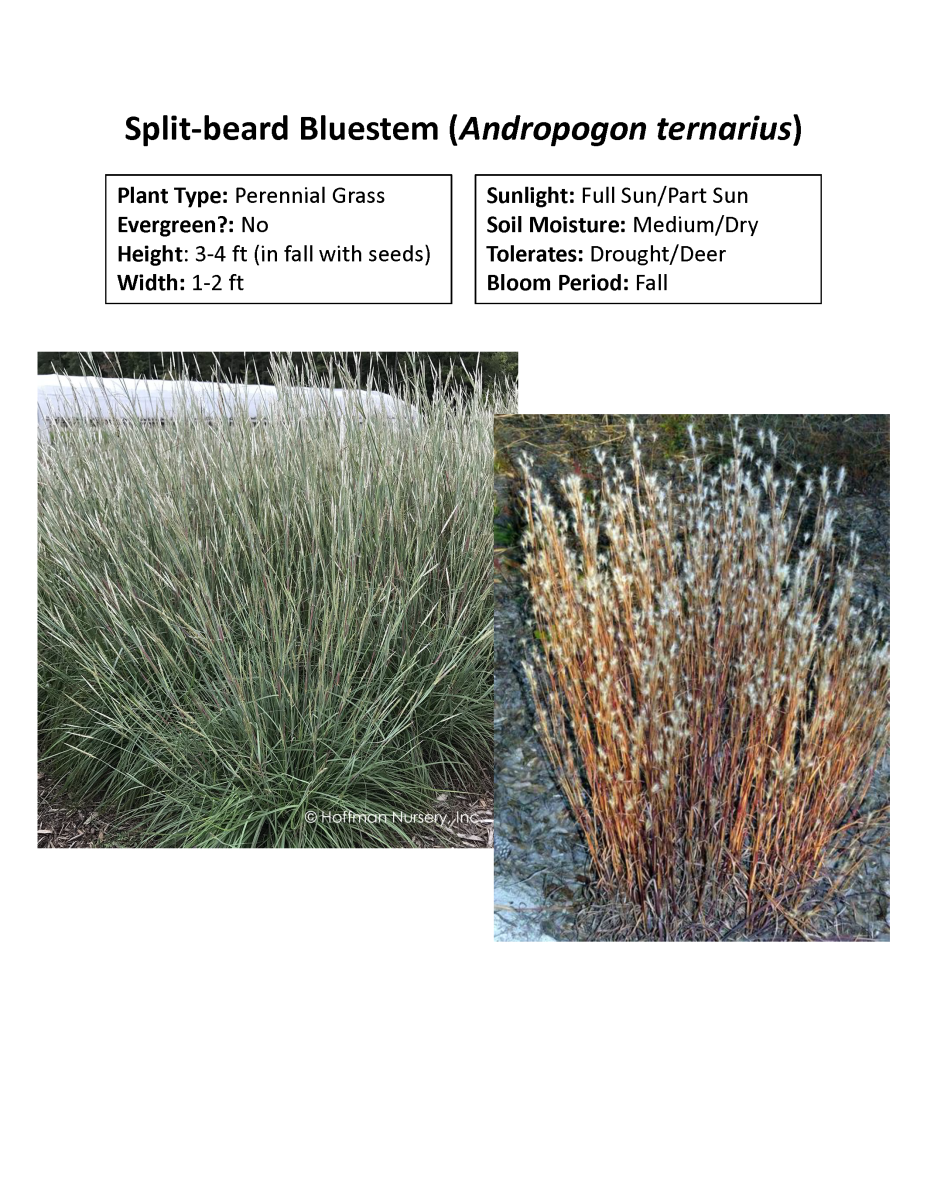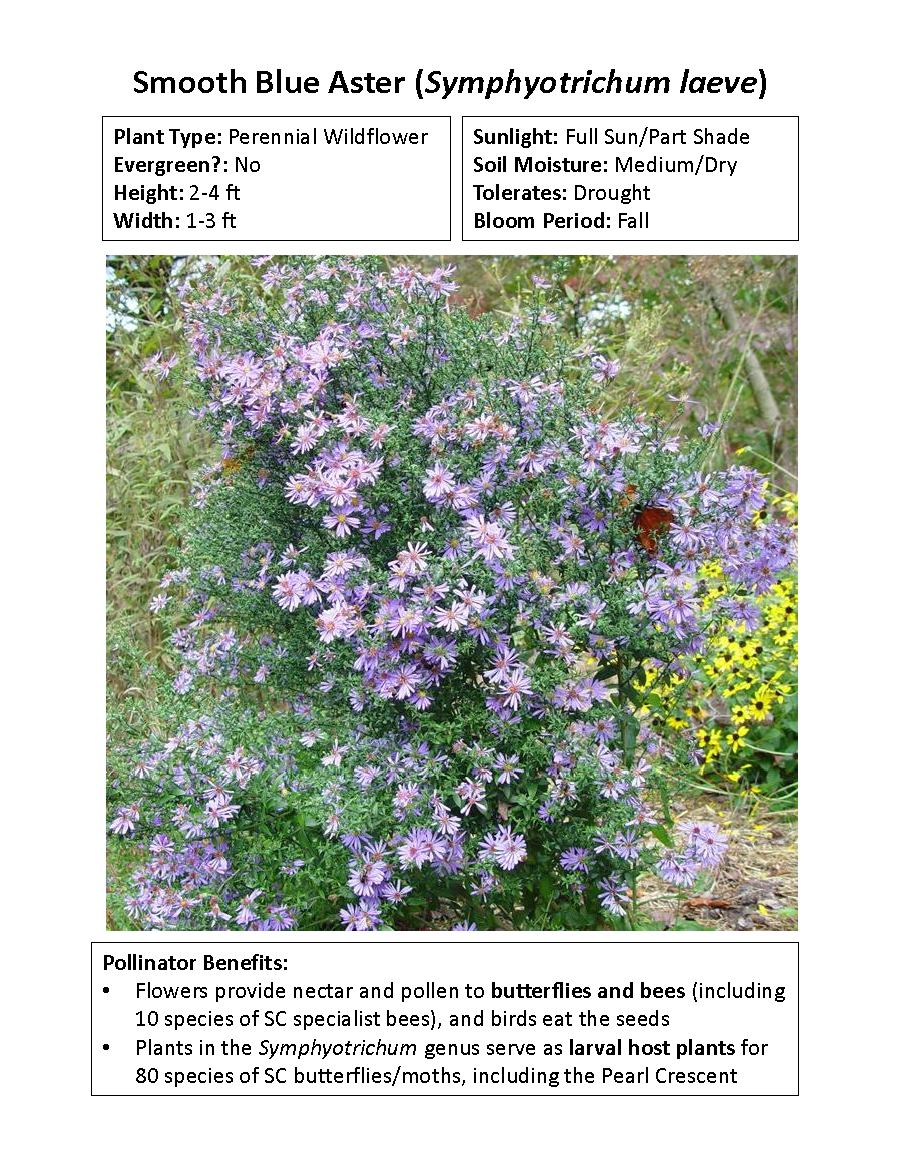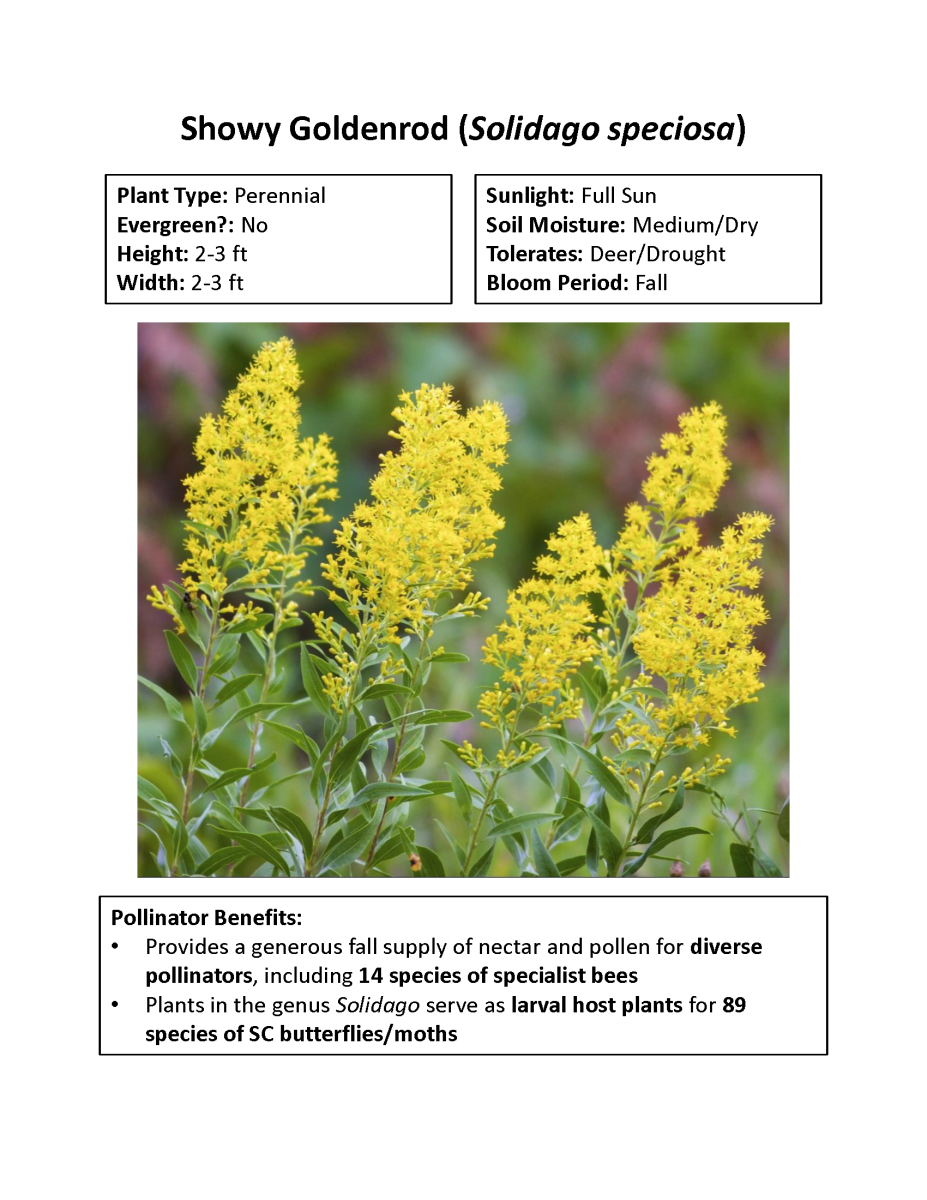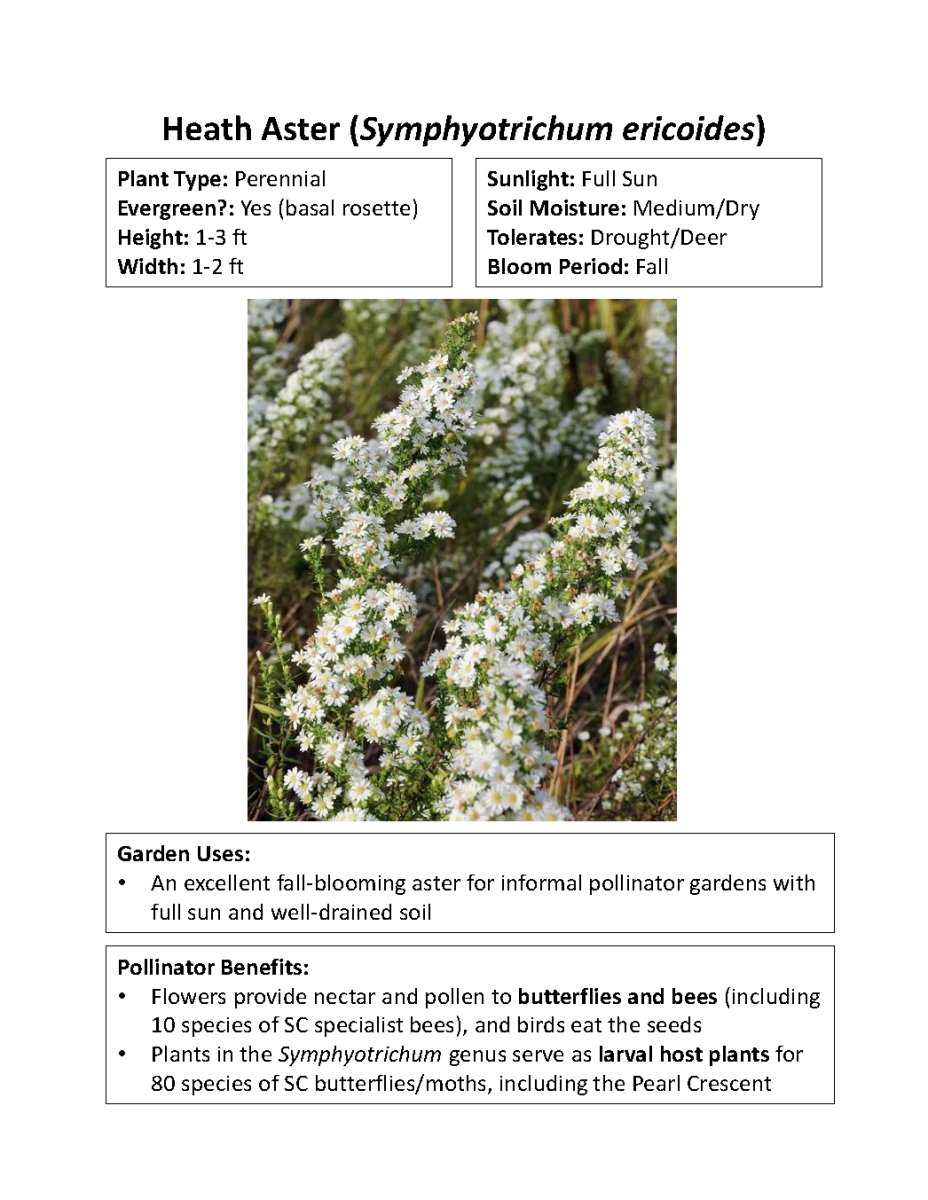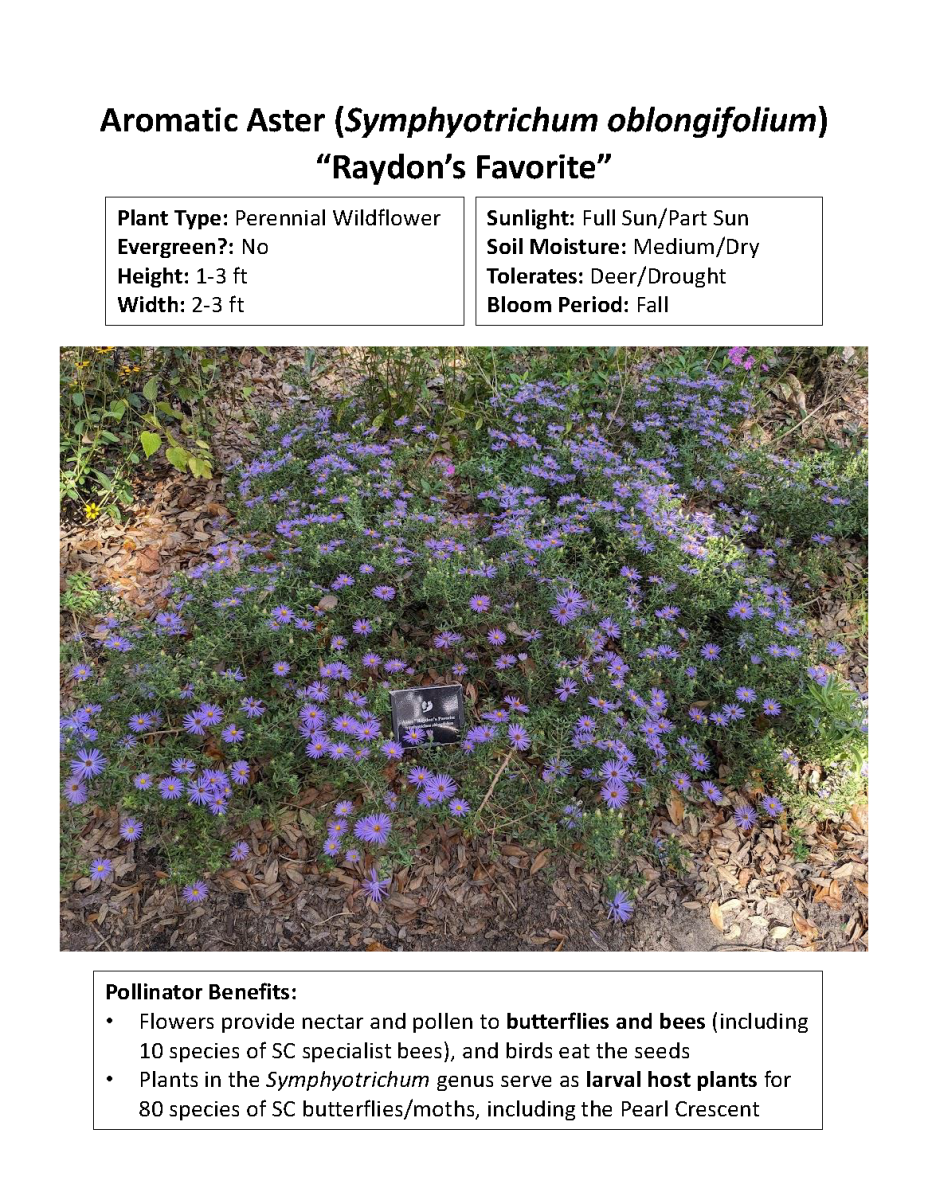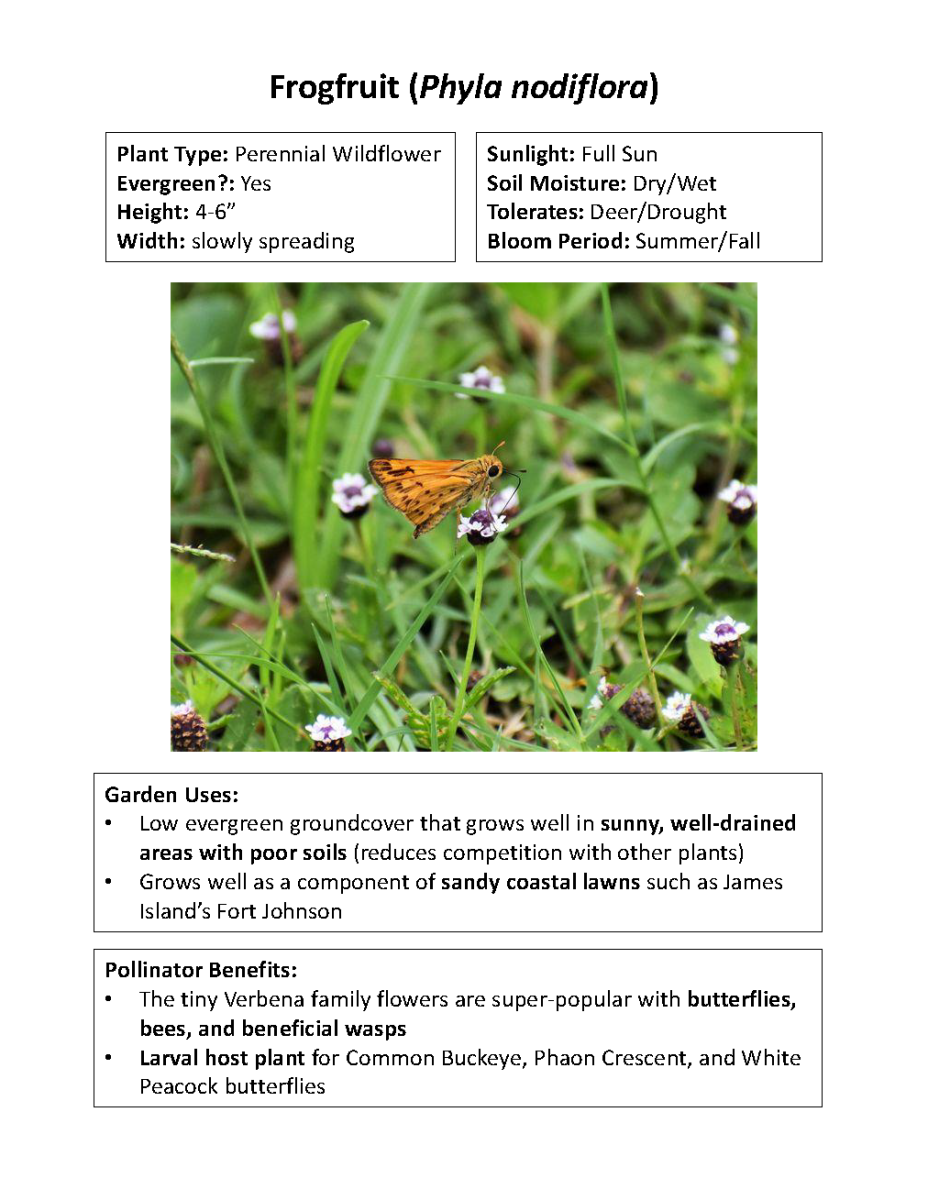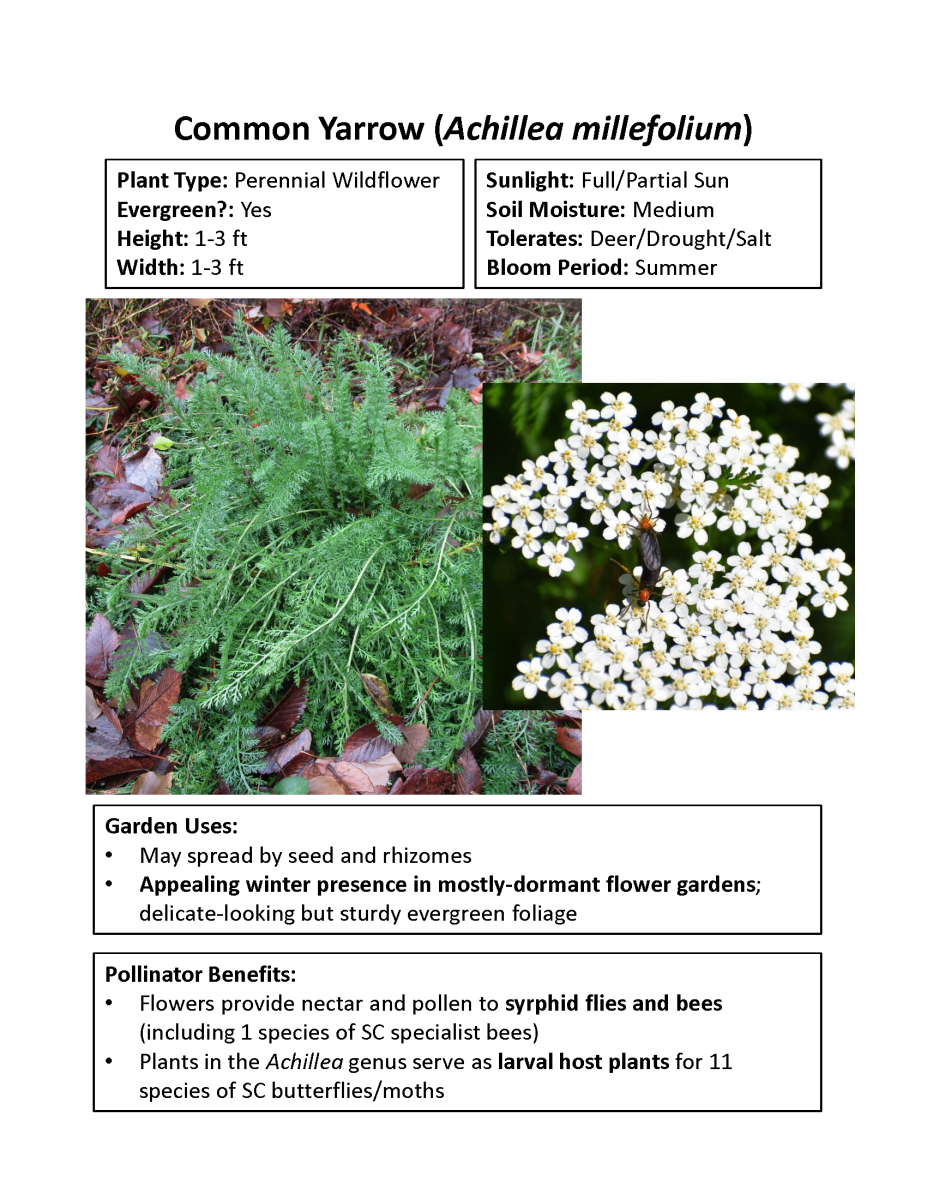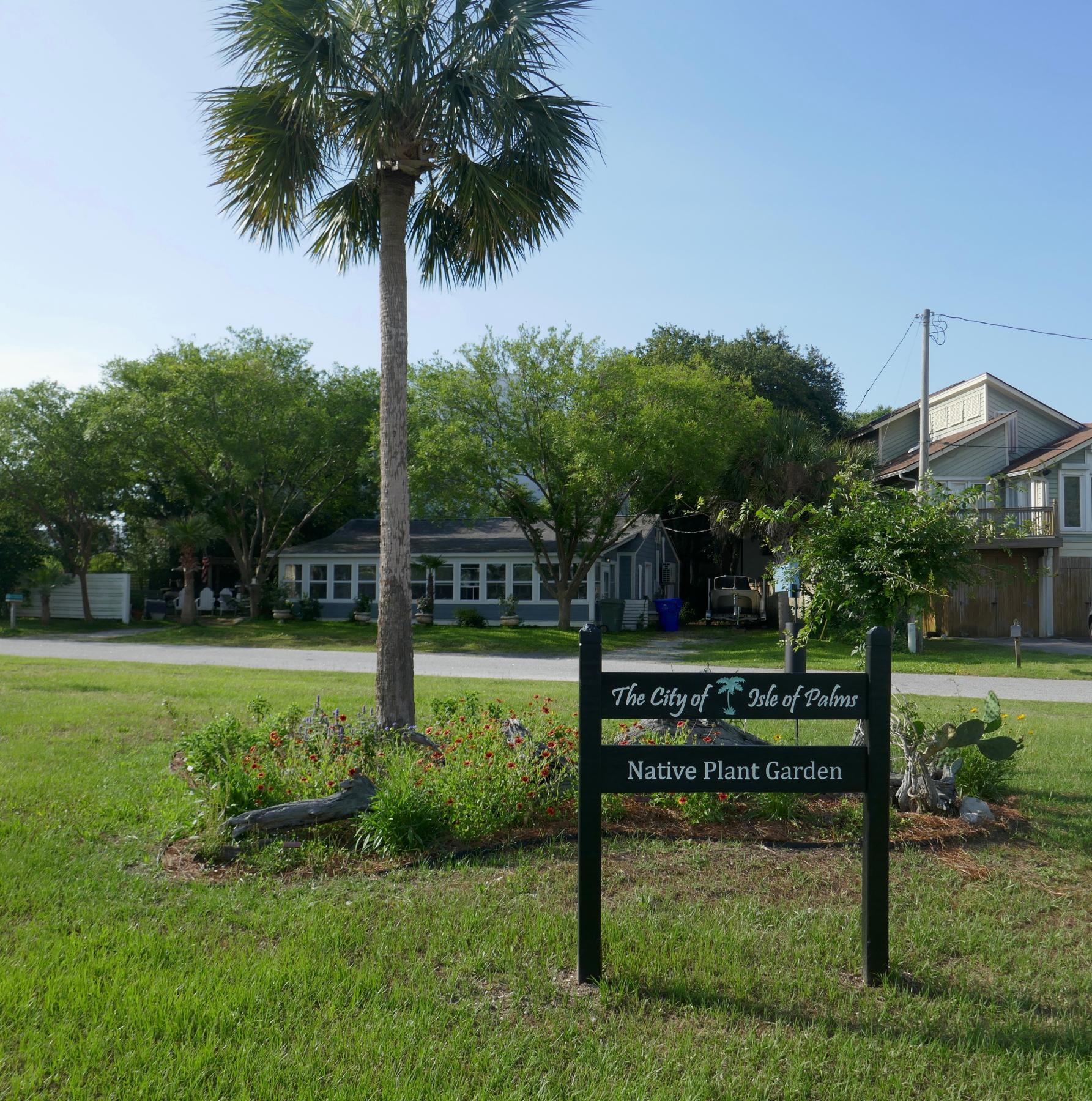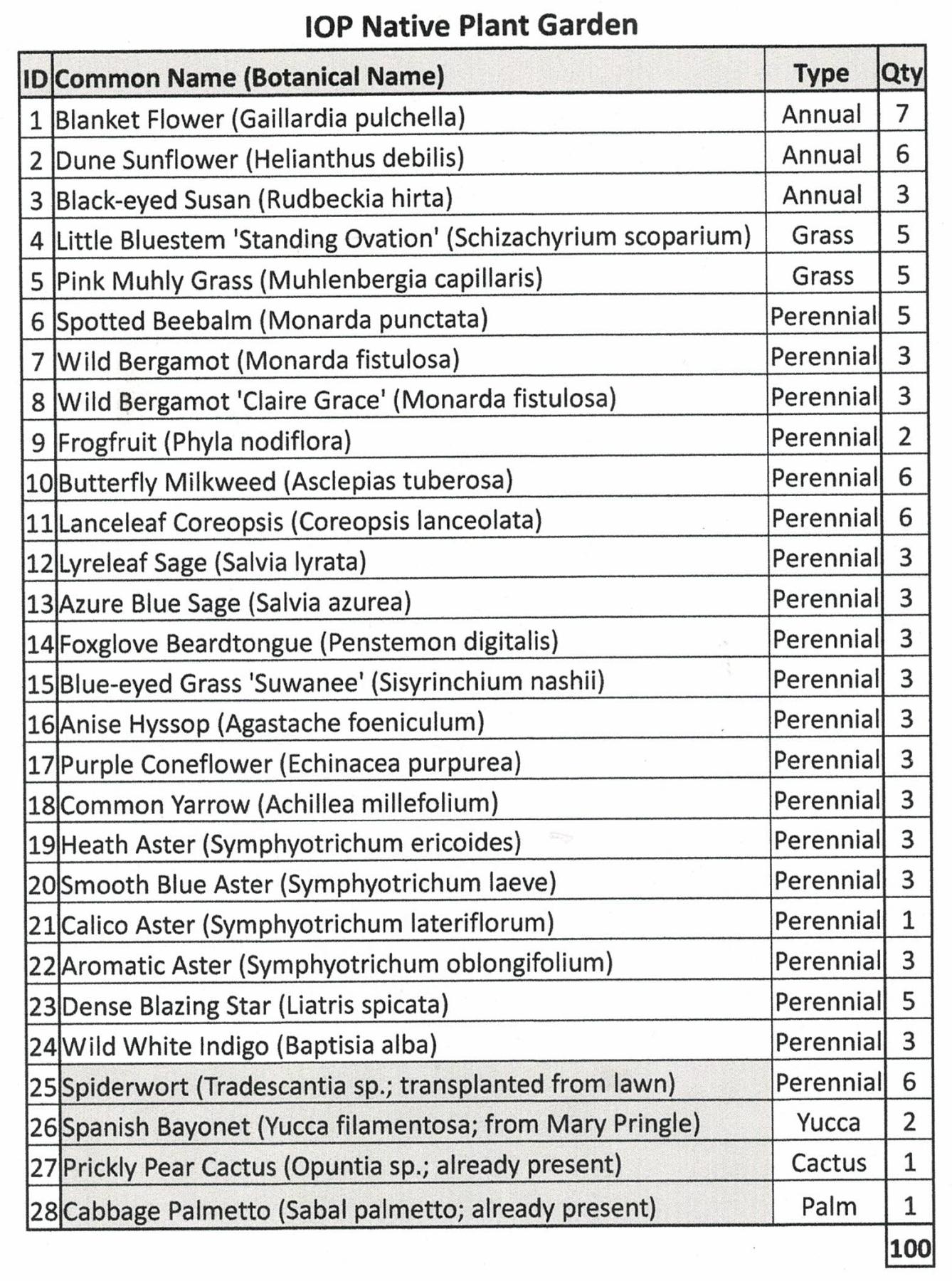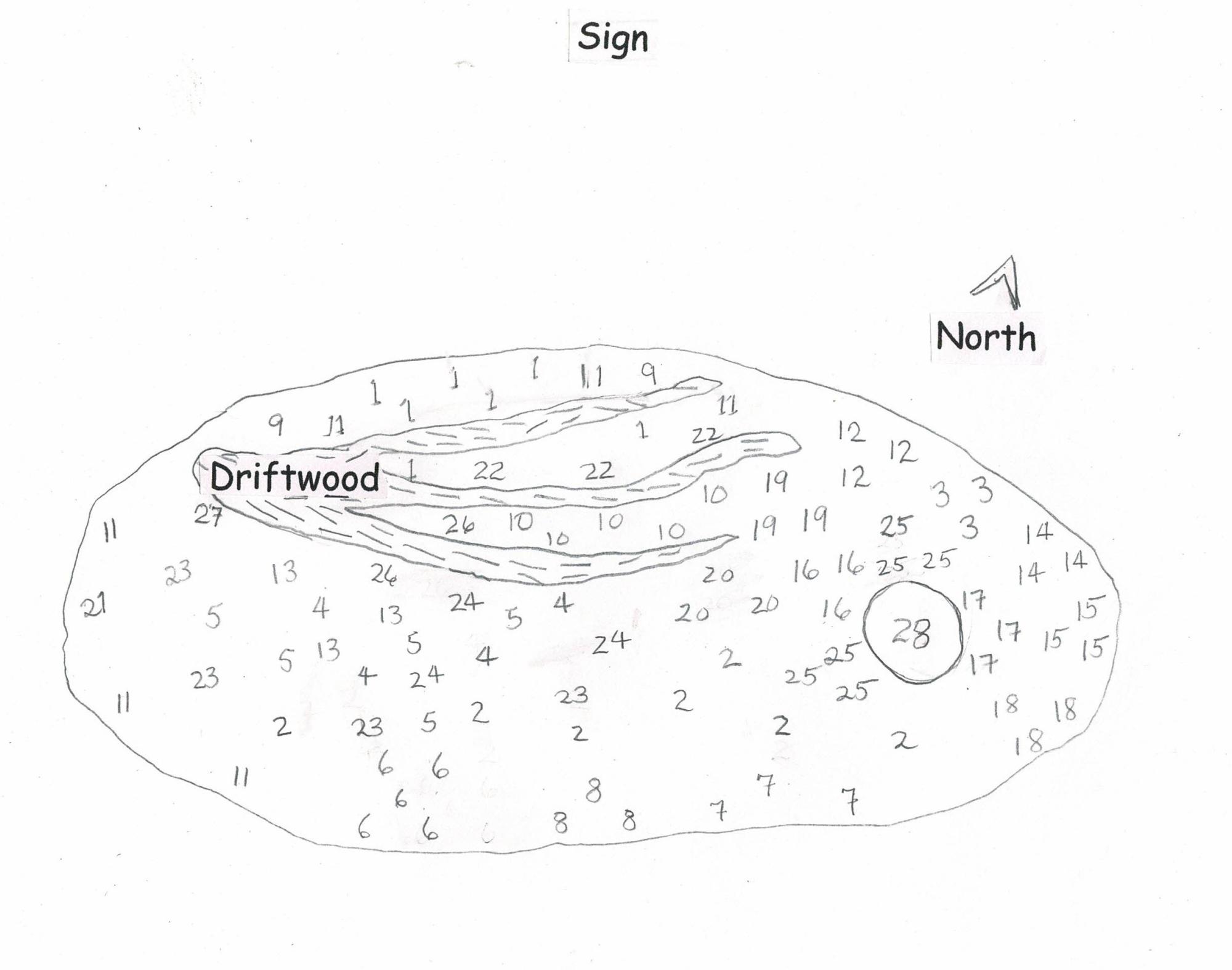Native Plant Garden to Promote Biodiversity
Isle of Palms Native Plant Garden
The City of Isle of Palms in conjunction with the Environmental Advisory Committee created a Native Plant Demonstration Garden in the spring of 2024. Here is information about it:
- The garden is planted on Palm Boulevard at 7th Avenue on property owned by The Isle of Palms Water & Sewer Commission. This beautiful spot overlooks the marsh and Hamlin Creek.
- Planning and Planting. The City hired Sharleen Johnson, owner of Native Plants to the People to design it. Along with help from Environmental Committee members and citizen volunteers, Sharleen prepared and planted approximately 100 native annuals and perennials in March.
- What is Planted There? Among the annuals are blanket flower, dune sunflower and Black-eyed Susan. Included in the perennials are spotted bee balm, two kinds of Wild Bergamot, Frog fruit, Butterfly Milkweed, Lanceleaf Coreopsis, Anise Hyssop, Purple Coneflower, Common Yarrow, four varieties of Aster, Dense Blazing Star, Wild White Indigo, Spiderwort and Dense Blazing Star. There are two kinds of grasses: Little Bluestem and Pink Muhly grass (sweetgrass). Other natives that were already there are Spanish Bayonet, Prickly Pear Cactus, Trumpet Creeper (vine) and our state tree, the Palmetto.
- During the blooming season, which varies from plant to plant, many species of bees, wasps and butterflies as well as hummingbirds feed on nectar and pollen. Seeds provide food for other birds as well.
- What Else is There? The property also contains a gourd rack with six white gourds where Purple Martins nest from March until August. These neotropical migrants are the largest swallows in the Western Hemisphere who arrive on the Isle of Palms in February or March and then spend their winters in Brazil. They feed exclusively on insects, so they follow the season where food is plentiful. They nested in every one of the gourds even though this was the first time that housing was placed there.
- What Will Become of It? This may be a temporary garden. The Water Commission owns the land and has given the city a two year period for the garden. It will be interesting to see what it will look like next spring and summer. If all goes as expected, the perennials will be well-established and the seeds of this season’s annuals will produce new plants in the spring.
We invite you to stop by and enjoy the flowers. There are benches to sit on that were donated by local citizens. There is also a QR code attached to the Garden Sign that gives even more detailed information about the plants as well as copper signs to identify the different species of native plants. See what's planted in the garden and their locations in the diagrams below.
